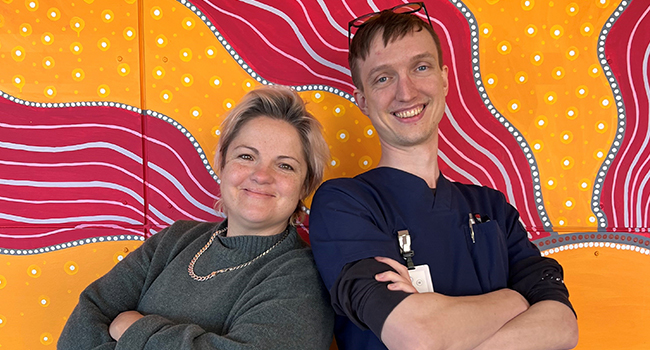
Innovation isn’t always about technology. Sometimes it’s about the simple things that make a big difference.
That’s exactly what happened when a group of staff from our Mental Health, Alcohol and Other Drugs (MHAOD) services took part in the Agency for Clinical Innovation’s 12-month Healthcare Redesign program.
Their mission? To ease pressure on Emergency Departments and improve the experience of people needing mental health care.
The project focused on one of the most vulnerable moments in a patient’s journey: being transferred from ED to a mental health inpatient unit.
Instead of waiting for patients to arrive on the ward, nurses from the inpatient team now meet them in ED.
They introduce themselves, take part in bedside handovers and then personally walk with patients to the mental health unit.
One of the project’s leads is Richmond Community Treatment Team Clozapine Coordinator Silas Warren-Hendrickx.
Silas said this small shift has had a big impact.
“It’s a trauma-informed approach that helps people feel safer and more supported,” Silas said.
“We’re seeing less anxiety and confusion, and a stronger sense of connection from the start.
“The new process improves communication between ED and mental health teams, reduces delays and allows for early visual assessments to support clinical safety.
“It’s a win-win for patients and staff alike.
“This project would not have been possible without the hard work, collaboration, and dedication from both our ED and mental health colleagues.”
A new group of MHAOD staff will begin the Healthcare Redesign program this month, with a focus on better involving families and carers in patient journeys.
“This is an essential ingredient in recovery and long-term wellbeing,” Silas added.
The project was recently featured in ACI’s statewide showcase of innovation.
All project leads of ACI-supported Healthcare Redesign projects earn a Graduate Certificate in Healthcare Redesign.
Pictured:
Meet the project leads: Kamala Inpatient Unit Nurse (Mental Health) Jen Cant, pictured left, and Silas Warren-Hendrickx.